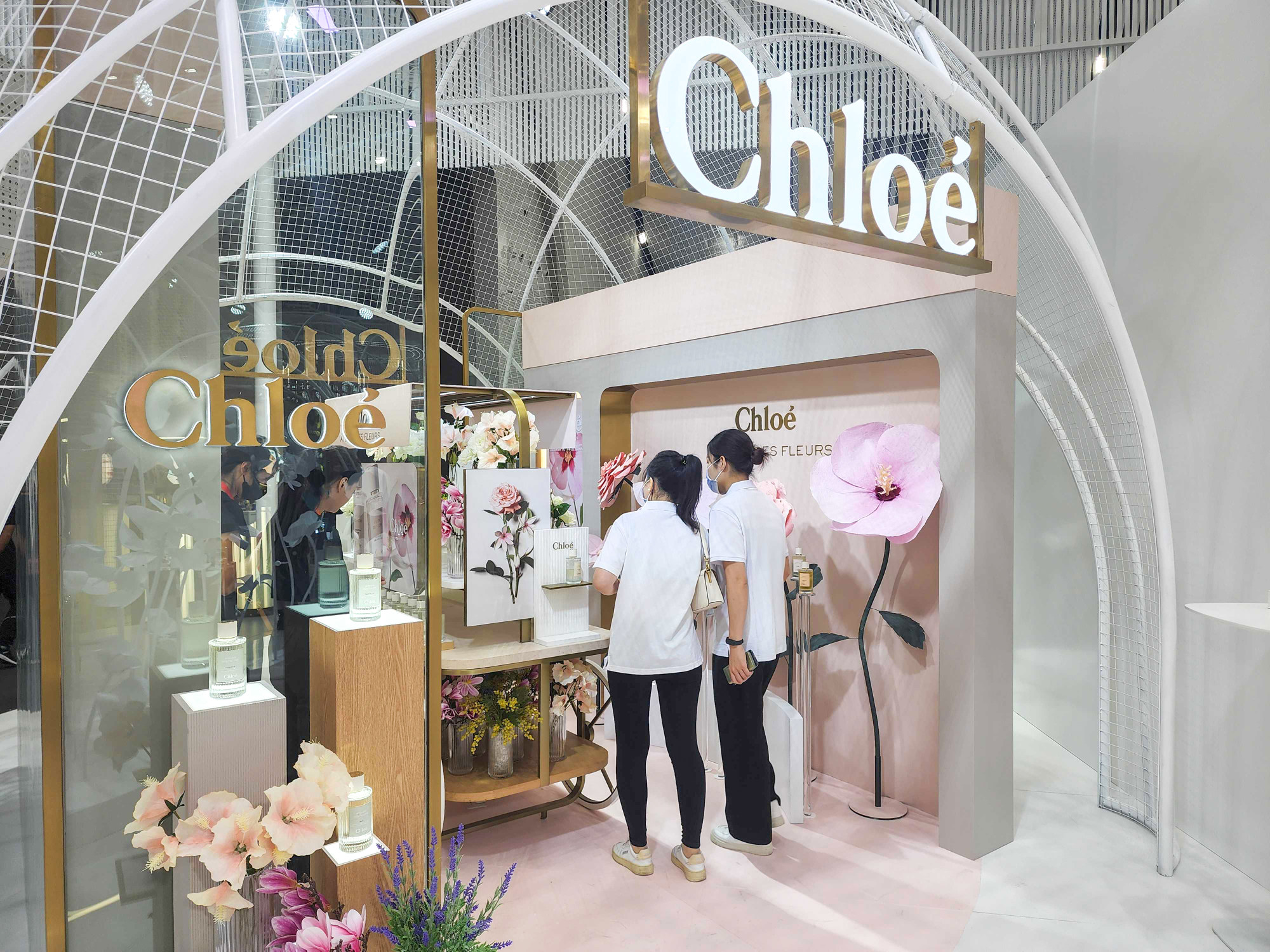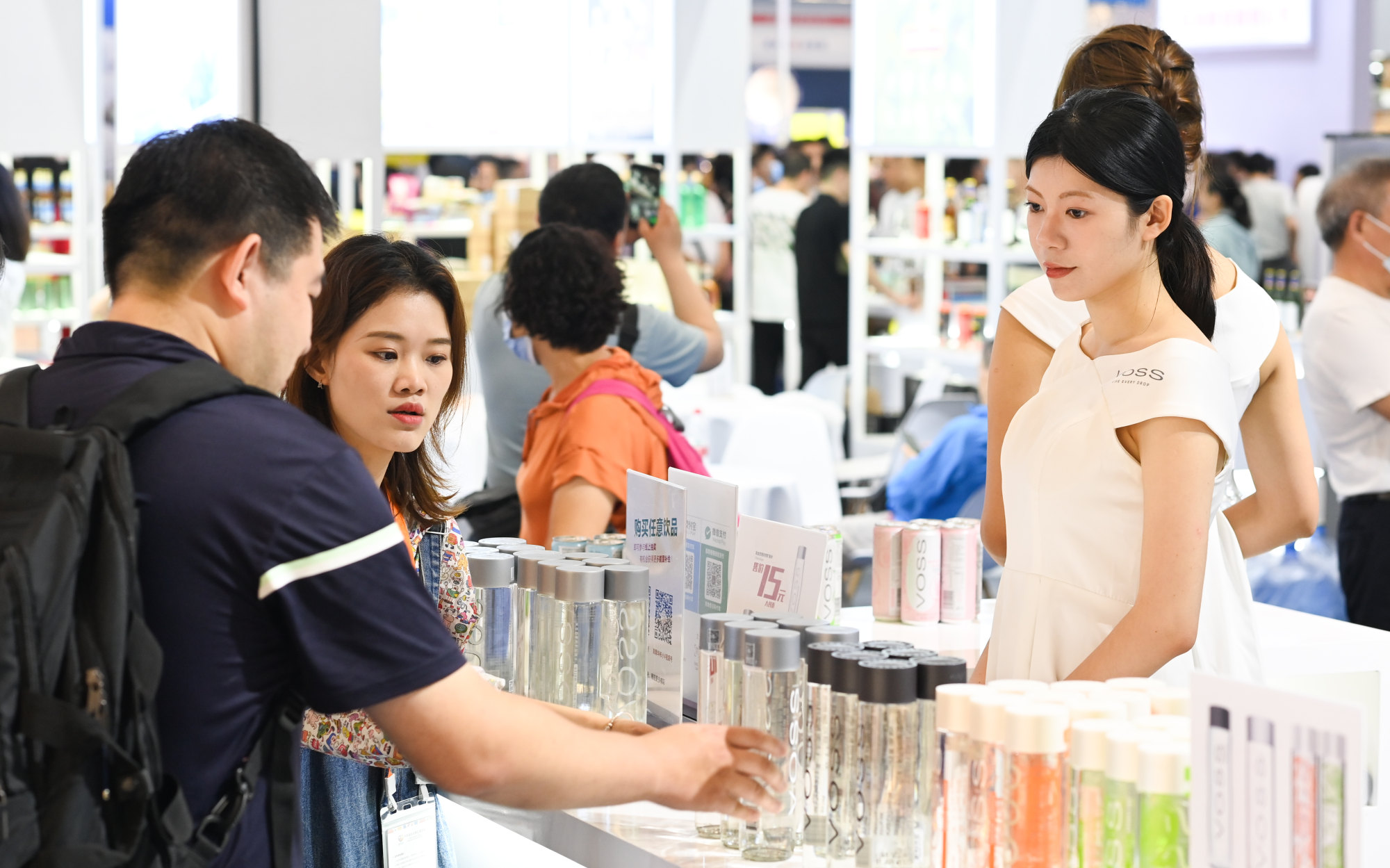
Foreign companies from Coty to Estée Lauder eye Hainan, China’s Hawaii, in bet on post-Covid recovery and duty-free boom
- Global brands are increasing investments in the tropical island of Hainan and the broader Chinese market to catch a revival in consumption
- The China International Consumer Products Expo held in Haikou saw a strong return of interest in Hainan’s high-end consumption market
American-French beauty company Coty, which holds licensing rights in cosmetics and fragrances to brands such as Burberry and Gucci, plans to add nine new sales points – including seven stand-alone shops – to its 29 existing sales points in Hainan in the next financial year, which begins in July, said Guilhem Souche, senior vice-president of global travel retail, in a recent interview with the South China Morning Post.
New York-listed Estée Lauder, meanwhile, established in late March its first office in Hainan, dubbed China’s Hawaii, late last month, citing the region’s “strategic importance” for the group’s travel retail business. It came after the beauty giant last October started selling in 13 shops in Haikou, the provincial capital, in collaboration with China Duty Free.
New York-listed Coty said it is introducing a new brand to China in the second half of 2023, and eyeing an expansion into the local skincare segment in the next few years.
“[Our] priority’s always been China. If you look at skincare, China is really already the No 1 market in the world, dominating and still growing even during the three years of Covid,” said Souche. “Hainan is playing a key role for travel retail. This is why, for us, Hainan is so important.”

The event saw a strong return of interest in Hainan’s high-end consumption market. Brands that exhibited at the six-day expo surged by 19 per cent from a year earlier, while the number of participants exceeded 320,000, according to official data.
Many were encouraged by Beijing’s call to boost domestic consumption, a key pillar for economic growth amid a tepid trade outlook. A number of companies said they are prepared to raise investment in Hainan.
Akiba Takamitsu, deputy director-general of Japan External Trade Organisation, said all of its 38 member companies are considering coming to Hainan, while one has already opened shops in Sanya city, known for its upscale beachside hotels.

Many of the member companies import premium rice, wine, and fabrics from Japan, and they are attracted by Hainan’s preferential business environment and policies.
Although sales made in the first days of the expo were still lower than pre-pandemic levels, Takamitsu said he expects things to get better. “I am confident that the market will continue to recover in China. It won’t be immediate, but 2023 will be a great year,” he said.
Xie Yan, a Czech crystal importer, is also tempted to set up shops in Hainan, but said he is waiting to see if his company can benefit from the island’s free-trade policies.
“The biggest issue right now is that all the duty-free brands are managed by six state-owned companies. It’s unknown whether the duty-free policy would be applied to small and privately-owned companies like us,” he said.

However, some companies believe that the local market in Hainan is already saturated after a rush by brands onto the island during the pandemic, especially in the competitive skincare and cosmetics segments.
Swedish skincare device maker Foreo said it will put more focus instead on expanding in other parts of China, with plans to launch a new skincare product line in both China and the rest of the world in the second half of this year.
The company, which currently has 12 shops in four cities in Hainan, still aims to add one to two shops on the island annually, but it will focus on enhancing local services and optimising its interaction with consumers, said Allen Fang, travel retail manager at the company.
“Companies in this market are looking for differentiation, so pricing will not be as aggressive as the previous two years, when brands were engaging in price wars,” he said.



